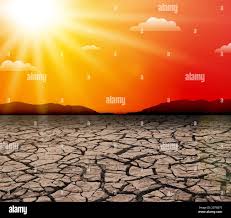By Samuel Ogunsona
The Chairman, House of Representatives committee on media and public affairs, Mr Akintunde Rotimi, has said Nigeria is among the top tier vulnerable countries affected by climate change.
He said the country has been facing several climate crises which includes extreme heatwave, drought, flood and food insecurity.
However, between February and April 2024, Nigeria experienced one of the hottest heatwaves in recent years especially the city of Lagos.
Many took to their social media page complaining about the extremely hot weather condition while some made jokes saying “God has open the doors of hell that directly faces Nigeria.”
Responding to the wailing, experts said the unusual 39°C -40°C temperature rise recorded in the city is due to effect of climate change where human activities like “deforestation” among others have exposed the earth to direct sun scourge.
Rotimi said, “The heat wave is just one of the surface impacts that we feel and experience, but the problem runs deep. In different parts of the country, climate change is exacerbating the root causes of conflict.
“The constant move of herders southwards in search of greener pastures, the drying up of Lake Chad, the struggle amongst kinsmen in oil producing communities, have all degenerated into tensions, maiming, killing and uncountable fatalities.
He continued, ““The nexus between climate change and conflicts in Nigeria is established in literature. For example, a 2023 Study showed that the increasing land surface temperature in Nigeria’s Mid-Benue Trough is increasing the fatalities linked to the conflicts between herders and farmers. The nexus is clear.
“As the earth gets warmer, its surface gets hotter and drier, leading to desertification which in turn reduces arable land, pasture and water bodies available to farmers, herders, fishermen and other land users” he said.
Rotimi also argued that floods is one of the most biggest threats to Nigeria farmers which has led to food insecurity in many part of the country.
“Similarly, flooding which is exacerbated by climate change is one of the most devastating and frequently occurring natural hazards that Nigeria faces.
“The 2022 Nigeria floods affected many parts of the country. From the Federal Government Data, the floods displaced over 1.4 million people, killed over 603 people, and injured more than 2,400 people. About 82,035 houses were damaged, and 332,327 hectares of land had also been affected.
“While Nigeria typically experiences seasonal flooding, this flood was the worst in the country since the 2012 floods. Climate change has been implicated as the main cause”. He said.

